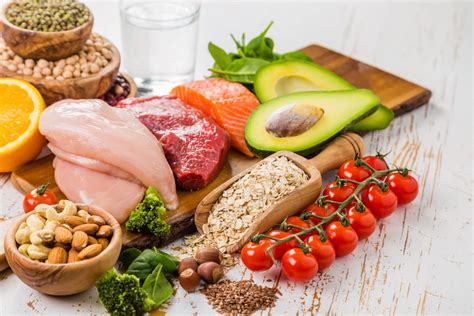What daily habits naturally boost testosterone for peak male performance?

Testosterone, the primary male sex hormone, plays a crucial role in more than just libido and muscle mass; it influences mood, energy levels, bone density, and even cognitive function. While synthetic options exist, many men are seeking natural, sustainable ways to optimize their testosterone production. The good news is that several daily habits, deeply rooted in a healthy lifestyle, can significantly contribute to boosting your body’s innate ability to produce this vital hormone.
The Power of Consistent Exercise
Regular physical activity is one of the most potent natural testosterone boosters. Not all exercise is created equal when it comes to hormone optimization, however. Strength training, particularly compound movements like squats, deadlifts, bench presses, and rows, stimulates a robust hormonal response. Aim for 3-4 sessions per week, focusing on heavy lifts and progressive overload.
High-Intensity Interval Training (HIIT) is another excellent choice. Short bursts of intense exercise followed by brief recovery periods have been shown to elevate testosterone levels, alongside improving cardiovascular health and reducing body fat, which is also beneficial for hormone balance.

Nutritional Foundations for Hormone Health
Your diet directly impacts hormone production. To support healthy testosterone levels, prioritize nutrient-dense whole foods. Include plenty of healthy fats, such as those found in avocados, nuts, seeds, olive oil, and fatty fish (like salmon and mackerel). These are crucial for hormone synthesis.
Adequate protein intake is also vital for muscle repair and overall bodily functions. Opt for lean meats, poultry, eggs, and plant-based protein sources. Don’t forget the micronutrients: Vitamin D, zinc, and magnesium are particularly important. Spend time in the sun for natural Vitamin D, and consume zinc-rich foods like oysters, beef, and pumpkin seeds. Magnesium can be found in leafy greens, nuts, and dark chocolate.
Equally important is what you limit: excessive sugar and processed foods can lead to inflammation and insulin resistance, both of which are detrimental to testosterone production. Moderating alcohol intake is also key, as heavy consumption can negatively impact hormone levels.

Prioritize Quality Sleep
Sleep is not merely a period of rest; it’s a critical time for hormone regulation and repair. Chronic sleep deprivation has a direct and significant negative impact on testosterone levels. Studies show that even a week of restricted sleep (less than 5 hours per night) can reduce testosterone levels by 10-15% in healthy young men.
Aim for 7-9 hours of high-quality, uninterrupted sleep each night. Establish a consistent sleep schedule, create a dark and cool sleep environment, and avoid screens before bed. Good sleep hygiene is a cornerstone of overall male health and performance.

Mastering Stress and Mindset
Chronic stress elevates cortisol, a hormone that has an inverse relationship with testosterone. When cortisol levels are consistently high, testosterone production tends to decrease. Finding effective ways to manage stress is therefore paramount for hormone balance.
Incorporate stress-reducing practices into your daily routine. This could include meditation, mindfulness exercises, deep breathing techniques, spending time in nature, yoga, or engaging in hobbies you enjoy. A positive mindset and a sense of purpose can also indirectly support hormonal health by reducing the perception of stress.

Lifestyle Choices for Long-Term Gains
Beyond exercise, diet, and sleep, other lifestyle factors contribute to optimal testosterone. Maintaining a healthy body weight is crucial, as excess body fat, especially around the abdomen, can convert testosterone into estrogen, further diminishing levels. Limiting exposure to endocrine-disrupting chemicals found in some plastics (BPA), pesticides, and personal care products can also be beneficial.
A holistic approach, where all these elements work in synergy, will yield the best results for naturally boosting testosterone and achieving peak male performance. Consistency is key; these aren’t quick fixes but rather a sustainable path to enhanced vitality.

Conclusion
Boosting testosterone naturally is entirely achievable through dedicated daily habits. By integrating strength training and HIIT into your fitness regimen, adopting a nutrient-rich diet, prioritizing ample sleep, and effectively managing stress, you can create an environment where your body thrives and optimizes its hormonal output. These consistent efforts not only elevate testosterone but also contribute to a significant improvement in overall male performance, energy, mood, and long-term health.









